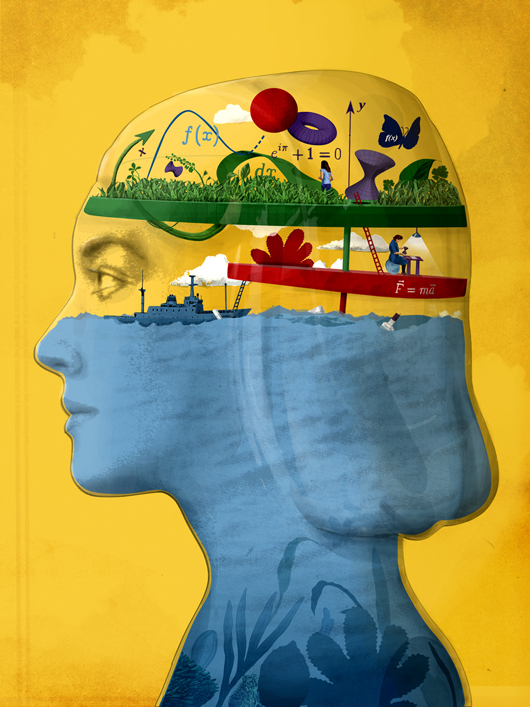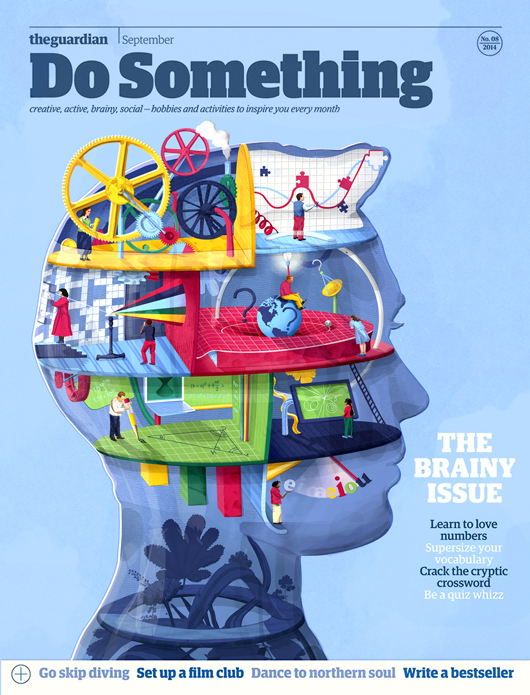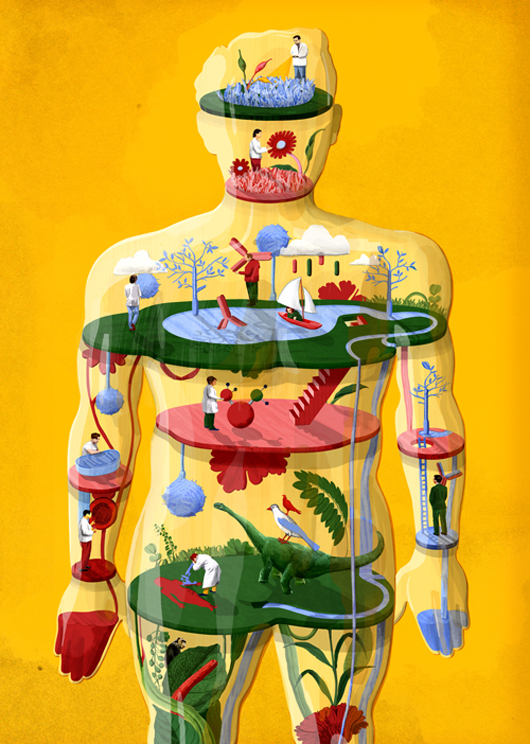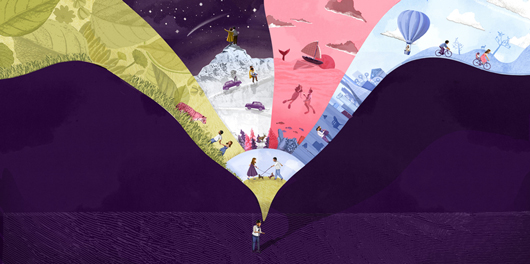Sam Falconer
Nautilus-Chunking
What was your key motivation in becoming an Illustrator?
I think my key motivation was the intense desire to end up enjoying my day job! I’d had so many demoralising part time jobs as a teenager I was really keen to avoid those as an adult. At college I was very close to applying for entrance to a Computing degree but the fear of ending up uninspired by that made me rethink what it was that I fundamentally enjoyed doing. Some of my friends at the time were applying for art courses and envious of how content they seemed to be, I decided to pursue what I then saw as “drawing” and managed to get accepted on to a foundation course. That turned out to be probably the most enjoyable year of my life and so I applied to the Illustration BA at Kingston University and was lucky enough to get a place.
The Guardian – Do Something – The Brainy Issue
When a company for a commission approaches you, what are the first three steps you take?
I’ll first of all quickly research the publication or client and then, alongside my agent in most cases, agree on a fee that we feel is fair. This is sometimes easier said than done of course! I’ll normally have some questions about the brief that I’ll then run by the art director before getting on with some rough ideas. Editorial jobs tend to have a fair amount of freedom but with the larger jobs I always try and clarify any vagueness before starting work, as the clients can often want things to be quite specific.
You graduated in 2011, what impact did studying Illustration have upon your creative practice?
The three years at Kingston were crucial for me, my mindset changed so much throughout my time there. I pretty much spent three years frustrated at not being able to make work that I felt proud of, whilst trying so many different mediums and approaches. I think the tutors’ openness to different ways of working ultimately allowed me to land on a process that I was satisfied with after so much trial and error. The tutors experience and knowledge was really apparent and it’s certainly had a massive impact on my practice so far.
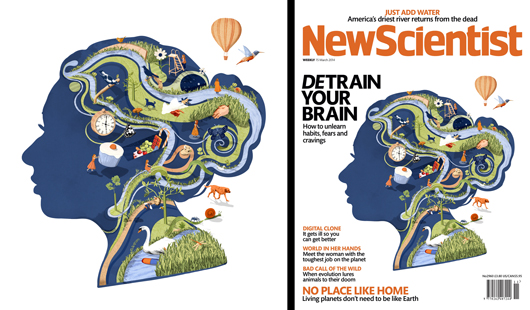
New Scientist – Detrain Your Brain
You sell giclée prints online. Do you think selling work through various platforms is an area for Illustrators to consider?
I felt that with the ease of setting up and maintaing an online store these days it was something that I should have available. I’d had a few emails from people asking me if they could order a print and it seemed like a wise move to have a place on my website where anybody could. I would certainly recommend an online store due to the low overheads and ease in which they can be set up. The thing I’ve found difficult is maintaining a fair profit margin without compromising on the paper quality and delivery method.
Scientific American – Nobel Extracts 2014
What importance do you put on your own personal body of work and how does this influence your commissioned work?
My personal work is really important to me and was the source of most of my commissions in the early days of working. Only through working on personal pieces relentlessly did I get my work up to a standard that I was more happy with. Commissioned work is great in that it forces you in to areas you wouldn’t otherwise explore but personal work allows you to really express what it is that you want to create. In quiet periods of work I’ll often try and squeeze in a personal piece to keep me motivated. They can also be great for promotional purposes too.
The Guardian – How to start up your own story night
Who and what keeps you inspired?
In terms of my work it has to be popular science programmes, books and magazines. I enjoy hearing about new breakthroughs and research and these can sometimes inspire personal pieces. The realisation of my overwhelming insignificance in the grand scheme of things can also fire me up in a weird way. I try and remind myself of how lucky I am to be alive in my circumstances at this point in time and able to work in an area that I enjoy. In general life it’s great to be able to share printed work with others and get feedback which gives a real job satisfaction. My supportive parents and partner are always there to be talked at when I’m in need of human interaction and of course my beautiful labrador who keeps me company all day and ensures that I move my limbs!
Back to News Page

